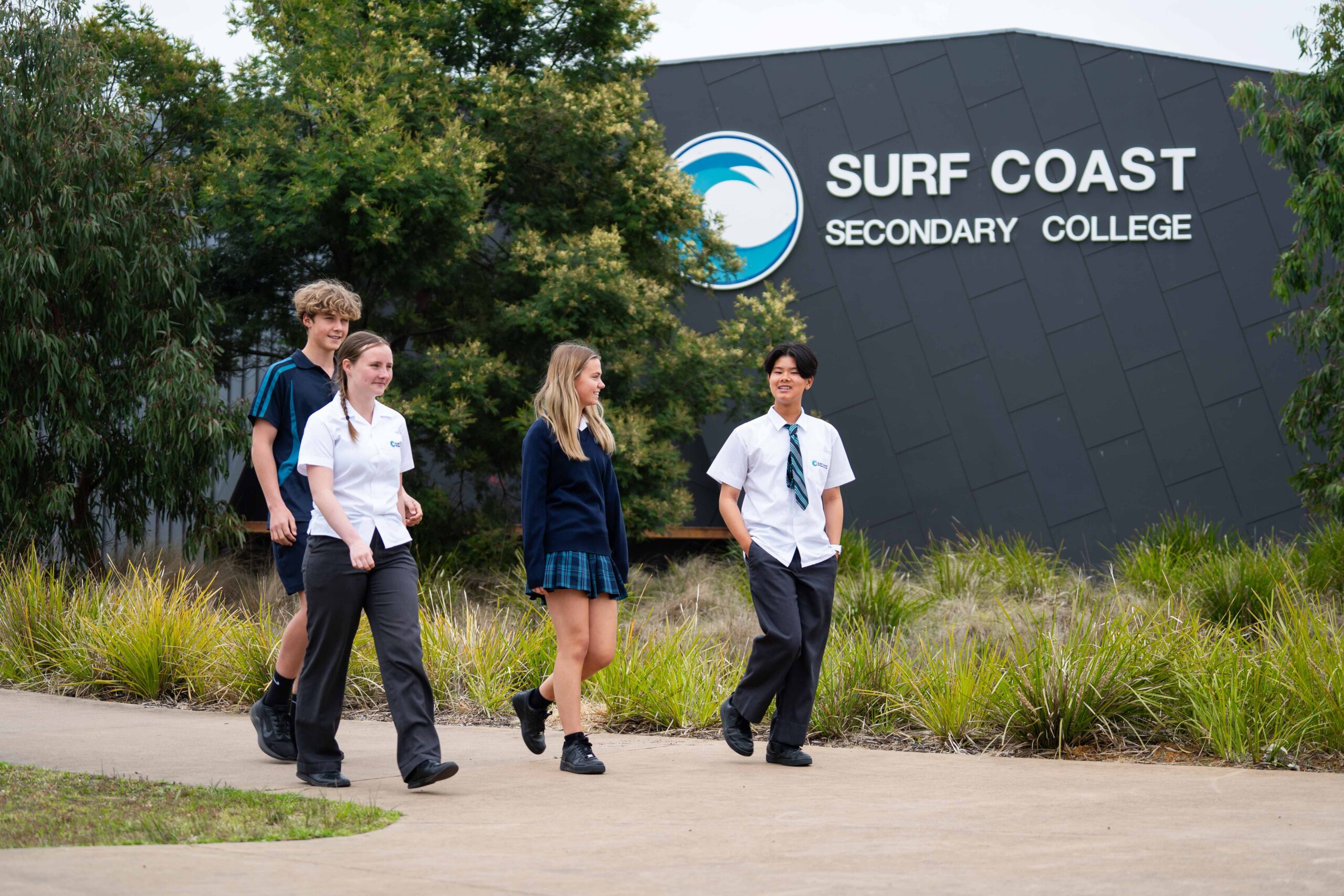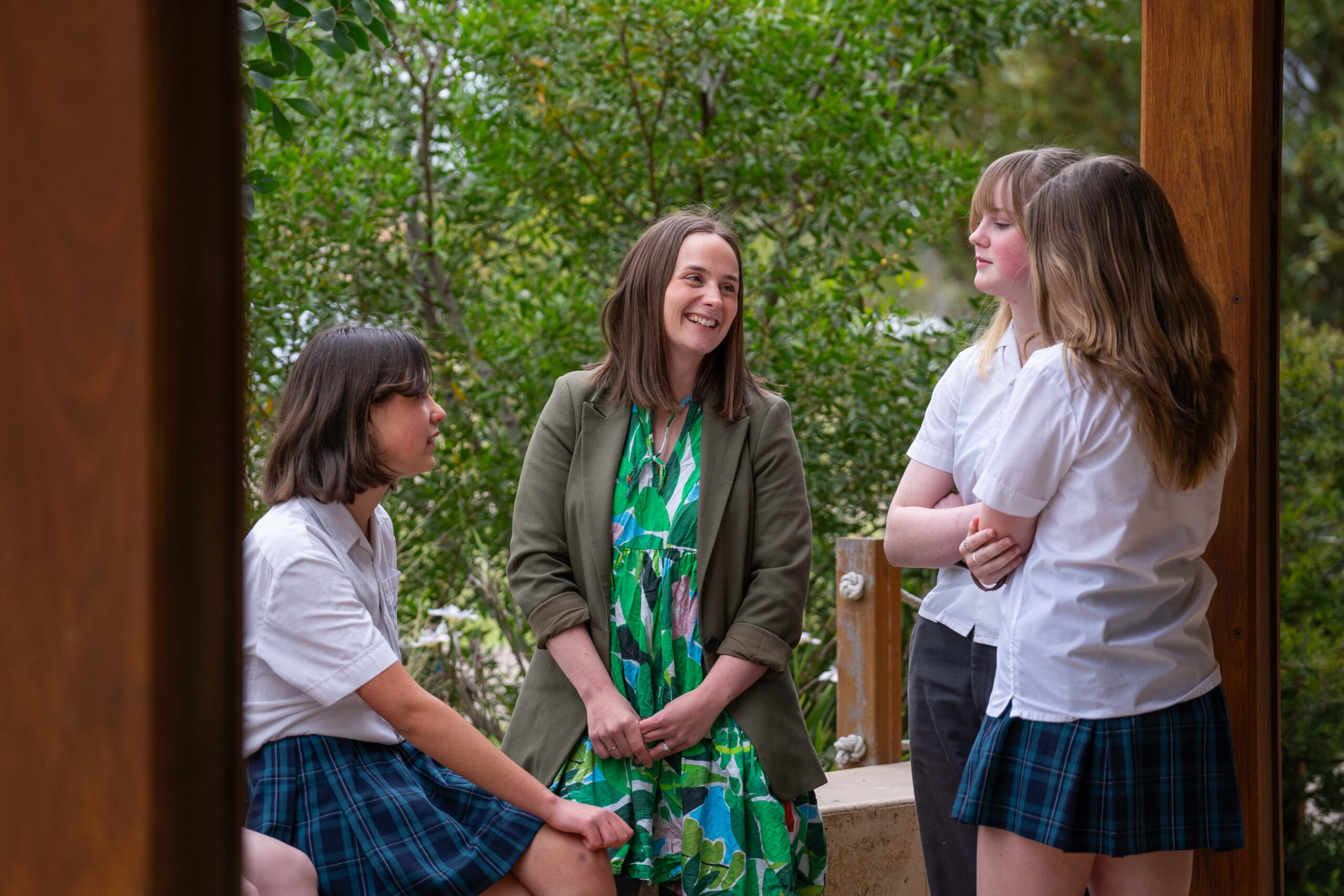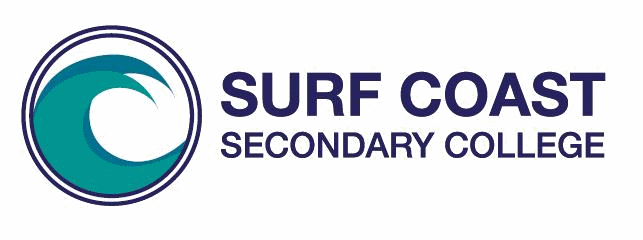Home > Enrolments
Enrolment Process
Enrolment Process
At Surf Coast Secondary College, we welcome new students at the end of each semester.
To organise an enrolment interview, please contact our College Enrolments Team on 03 5261 -6633. As we are a designated neighbourhood school, we ask that you have your proof of residency ready to submit. To find your designated neighbourhood school please check your address here. Unfortunately, without proof of residency, the College is not able to process your child’s enrolment.
Please be aware it may take up to two weeks after initial contact with our enrolments team for a meeting to be arranged. Once the College has approved your child’s enrolment and we have received all required documents, it may take a further week to process your child’s enrolment.
For any further enquiries about our Enrolment Process please email the College on enrolments@scsc.vic.edu.au with your name and contact number.

Please note: The Placement Policy has changed since the beginning of the 2022 school year. All enrolment decisions made from the start of Term 2, 2022 should be made in accordance with the current Placement Policy. The department’s Placement Policy embeds the legal entitlement for students to enrol at their designated neighbourhood school, and to enrol at another school if there is sufficient accommodation.
All Victorian government schools must manage enrolments in accordance with this Placement Policy, except those schools where the Minister or delegate has approved specific entry criteria, being:
- select entry high schools
- specialist schools
- English Language Schools and Centres
- camp and outdoor schools
- hospital schools and teaching units
- distance schools
- flexible learning government schools and flexible learning campuses
- any other school with entry criteria as approved by the Minister or delegate.
The Placement Policy applies to the placement of students at all year levels, from Foundation/Prep to Year 12.
Right to attend the designated neighbourhood school
Eligible children and young persons have the right to be admitted to their designated neighbourhood government school, regardless of capacity. Accordingly, all students that reside within the area of a designated neighbourhood school (referred to as a ‘school zone’) must be offered a place when seeking enrolment.
A student’s designated neighbourhood school is generally the school that is nearest the student’s permanent address as determined by the school zone. The Find My School website provides guidance on which school zone a student’s permanent residence is located within.
For information on verifying a student’s permanent address, refer to: Determining permanent residence.
The department recognises that some schools may require additional capacity to accommodate students from within their school zone. In these circumstances, schools may be supported by the temporary allocation of relocatable buildings.



Exceptional circumstances – compassionate grounds
In exceptional circumstances, a student may be enrolled at a school on compassionate grounds. This is an overarching consideration and does not form part of the priority order of placement.
Families must be able to clearly demonstrate the exceptional circumstances which they believe make an enrolment at their designated neighbourhood school unsuitable for their child or children, citing, for example, family violence or specific wellbeing, safety, physical health and/or mental health concerns. Importantly, this is not a comprehensive list of exceptional circumstances whereby a family may seek an enrolment on compassionate grounds; each application will be dealt with on a case-by-case basis.
Exceptional circumstances do not include instances where the designated neighbourhood school is able to make reasonable adjustments for students with disability. Under the Disability Standards for Education 2005, education providers are legally required to make reasonable adjustments for students with disability. For examples of reasonable adjustments and further guidance, refer to: Making reasonable adjustments.
When considering an application or appeal on compassionate grounds, schools and regional staff can request that families provide further evidence. Supporting evidence may include, but is not limited to:
- legal documentation
- reports from allied health and/or medical professionals, Department of Families, Fairness and Housing Practitioners, Victoria Police, family violence services or court orders.
Matters of compassionate grounds are of a sensitive nature and may pose risks to health and life (for example, matters related to family violence). Family and student privacy must be maintained when considering applications on compassionate grounds.
Surf Coast Handbooks & Booklists

